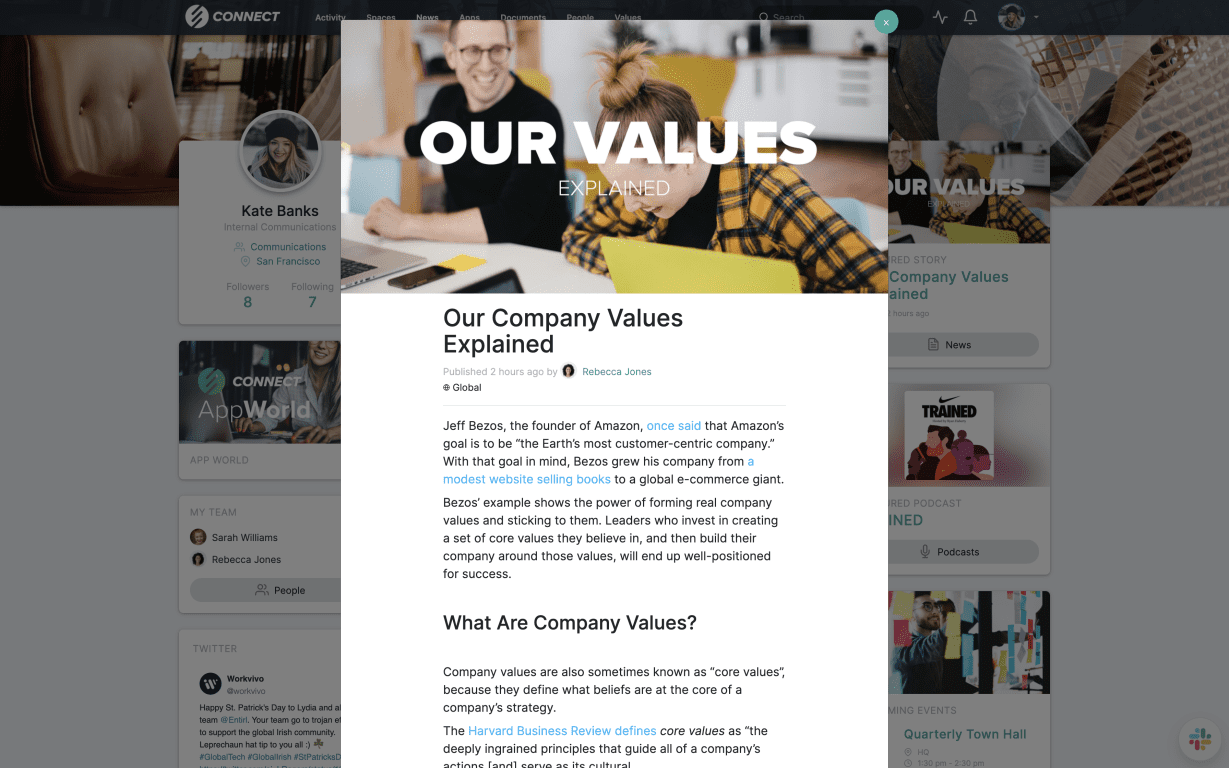Workvivo CEO on the need to forge emotional connection at work
How will this help companies succeed in the hybrid future of work?
Why You Should Care
The office is no longer the heart of organizations.
According to Workvivo CEO John Goulding, companies need to work on creating a digital core to foster engagement and belonging at work.
How can HR tech platforms like his help?
Before the pandemic, “the spiritual home of the workplace was the office”, according to Workvivo CEO and founder John Goulding.
This is because the office was where company culture was forged, and going to the office nine to five everyday created a sense of belonging to the organization and its purpose.

John Goulding, CEO of Workvivo
However, after 20 months of working from home, it is becoming clear that “we are not going back to the way things were”.
The future of work is going to be hybrid; where staff and teams split their time between the office and working elsewhere.
So, there is a need to shift from the office being the “spiritual home” to workplaces having a “digital core,” according to Goulding.
In creating this digital core, Goulding explains: “We need to create an experience in the digital world that builds that emotional connection to the organization”.
He continues: “We have ticked the box on productivity – we can get work done effectively in a hybrid world [with] Zoom meetings and sharing documents – [but] that doesn’t mean employee experience is any better”. To retain employees, particularly in the current highly competitive war for talent, you need “that emotional connection to the organization”.
Creating an emotional connection
So, how should employers go about improving employee experience and emotional connection to their employer?
According to Goulding, employers cannot just hope for the best and do nothing; if they do this, they will be at serious risk of losing huge swathes of talent in the ongoing ‘Great Resignation’. This is “a recipe for disaster and it is just burying your head in the sand”, notes Goulding.
Organization also cannot “do lots of stuff that aren’t making a meaningful difference to [creating an] emotional commitment to an organization. Goulding gives the example of hosting events like yoga classes online; he describes these types of efforts as “plasters” and “doing things for the sake of it”.
Instead, companies must be laser-focused and intentional about “creating a sense of belonging, recognition and creating connections” at work.
Employers must have “authentic leadership” and clear messaging about their values.
“The good news is you can do these things digitally” with the help of HR tech, according to Goulding.
HR tech and emotional connection
The best way to do this is through embracing a communication platform, such as Workvivo, Slack, Amity, or Workplace from Facebook.
Having a platform that enables HR teams and the C-suite to share content with staff – and therefore bring the company culture, values, and beliefs to life – is essential. It also helps if this is in a “very familiar social style” to what people are used to on social media, which is a priority for Workvivo and Workplace from Facebook.
This could be through pre-recorded messages from or town halls with the CEO, a podcast episode with eternal speakers or a personal profile of employees so people can learn more about their job and personal lives.

Credit: Workvivo.
However, Goulding is clear that employers must also utilize a platform that allows employees themselves to share stories, experiences, and wins with their colleagues and teams.
Therefore, Workvivo, for example, was designed to be a “very social platform” that helps to build community as well.
“A lot of the content on our platform comes from across the organization”, and this helps to create that all important culture of recognition “and congratulating people on a job well done” that “helps the employee feel part of something bigger”, according to Goulding.
Some employers are far ahead of the curve in terms of using HR tech and content to drive culture and belonging at work; examples include Aviva and Vodafone are really leading the way on.
Other organizations who don’t want to lose out in the ‘Great Resignation’ need to seize the moment and accept the “heart of the organization is no longer going to be the office”, according to Goulding.
“If you [can’t] influence emotional commitment to the organization [through having a digital heart], then you are going to fail”, concludes Goulding.
Remember, humans are emotional creatures, they want to feel like their work means something, and focusing on this creates happy and more productive employees.
Sign up to the UNLEASH Newsletter
Get the Editor’s picks of the week delivered straight to your inbox!

Chief Reporter
Allie is an award-winning business journalist and can be reached at alexandra@unleash.ai.
